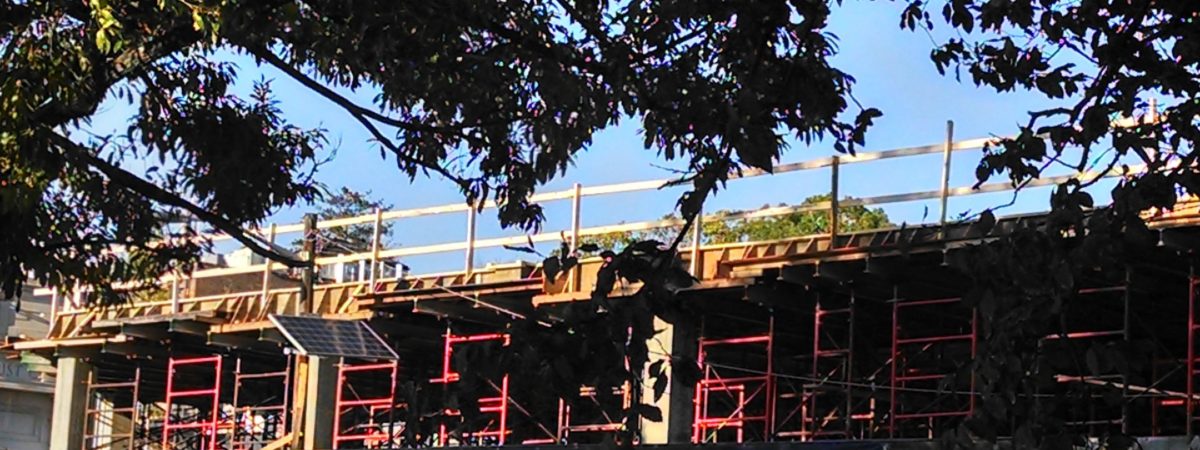My wife and I have bought two homes so far. Now we’re about to get our third place, and this time we’re building a house from scratch. But there are several considerations that we have to take into account, as they relate to the construction of a brand new home, and some of them more expected than others.
1. (Almost) Everything You Want
We picked everything from the floor plan to all the finishes in the house — including the flooring and paint color. However, not every aspect will be 100 percent custom.
Our home is part of a new development. As such, we’re limited to a list of floor plans and other customizations that fit within the neighborhood guidelines and, let’s be honest, the developer’s budget. Luckily, this new neighborhood fits our housing desires closely, but for others, this could be a far more limiting factor.
2. Pros and Cons of Building a Home From Scratch
We looked online to see what was for sale in our area and investigated every listing that met at least part of our criteria. None of them matched our idea of a dream home.
Besides, after doing extensive renovations on our last two homes, we didn’t want to be burdened with a long to-do list for our next house.
The resale homes we looked at seemed a bit cheaper than new construction at first glance. However, the price difference wasn’t much once we factored in the renovation expenses we would invariably undertake if we bought a resale.
For instance, one house we considered was listed for $40,000 less than building a home from scratch. Plus, we probably would have negotiated another $10,000 off the purchase price had we made an offer.
But we would have remodeled the kitchen completely in order to match what we wanted. Based on Zillow estimates, that renovation would have cost at least $30,000. We also would have changed some of the floors for an additional $10,000 and painted many of the rooms at the cost of about another $2,000. And that’s assuming we’d do it ourselves.
Then there’s the “price tag” of the stress and time renovations would take from our lives plus the opportunity cost, something people seem to rarely consider. For example, if I normally earn $100 an hour — to make the math easy — and I have to forgo my 40-hour-a-week job, or $4,000 in income, to paint my new house, then the price of painting is actually $6,000.
In the end, since we had the past experience of what home renovation costs both in time and money, and we wanted to walk into a near-perfect place this time, building a house from scratch made sense for us.
Of course, your decision will be specific to your finances, time constraints, and DIY skills, as well as the local real estate market.
3. Negotiation
We were able to negotiate, but builders normally have their prices pretty firmly set in advance, especially in new neighborhoods. They know their expenses down to a dime and obviously want to ensure a profit. Some builders may offer money to entice you toward upgraded finishes or a premium lot. However, you shouldn’t expect builders to negotiate too much on the sale price of the home.
In the end, we managed to negotiate an additional $5,000 of upgrade incentive money beyond what we were initially told they offered.
We also got the builder to pay for our owner’s title insurance — a cost of about $1,600.
Building homes is their business, as our real estate agent says. So they know exactly what they need to earn a profit from each home for before you even walk in the door.
Another common question for those interested in building a home from scratch: “Can you drop the real estate agent and save on commission by dealing with the builder directly?”
Based on everything I’ve read, it depends on the builder. I learned that our builder wouldn’t negotiate a lower price with or without an agent. I’m glad I ended up using my agent because she alerted us to many factors we wouldn’t have considered otherwise.
If you do forego using an agent when buying a new construction, there are a couple of points you should discuss with your builder.
“Make sure you know exactly which appliances are included in a new home,” says real estate agent Andrew Helling, who also runs the real estate resource site REthority, “Additionally, review local websites to verify your builder has a clean slate, ask about warranties for appliances, and try to avoid homes built in the winter if you live in an area with extreme temperature fluctuations.”
These points are second nature to a real estate agent, but you may glance them over if you’ve never purchased a newly built home before.
4. A Warranty
New-home warranties cover the cost of anything that was missed — or mishandled — by the builder. In the case of a new construction, they’re a prudent investment in making sure you don’t have to pay out of pocket when things go wrong, as they frequently do in new houses.
Throughout the construction of a new home, the cost of a new-home warranty was added to the contractor’s pay. These policies are frequently “built into” construction costs so new homeowners can fix things that were missed during the build process.
Most builders will warranty their work with a new home policy for periods ranging from one to 10 years.
Our policy lasted for a decade, covering cosmetic fixes, HVAC and electrical repairs, and any structural damage.
The one-year warranty is the most comprehensive, but the 10-year warranty will cover us on some of the more expensive structural items. These warranties can save you hundreds — if not thousands — in repairs to your new house. In my opinion, they’re are a good investment in protecting the value of your home (and saving cash in the long run).
“One of the biggest shocks that homebuyers face comes when something in their brand-new home breaks,” Helling says. “More often than not, new homes have more problems in the first year than existing homes. This is because problems have not had a chance to present themselves, which is why most builders offer warranties for the first year.”
After the warranty lapses, it’s up to you whether you want to invest in a new policy, such as a home-repair warranty. Some people prefer home repair warranties, as they can provide peace of mind. Others may want to hire specific contractors (or do it themselves) when appliances break. It’s up to you and your wallet to decide how you want to proceed.
Additional reporting by Connor Beckett McInerney.





Pingback : Are Tiny Homes Good Investments? The Lowdown | CentSai